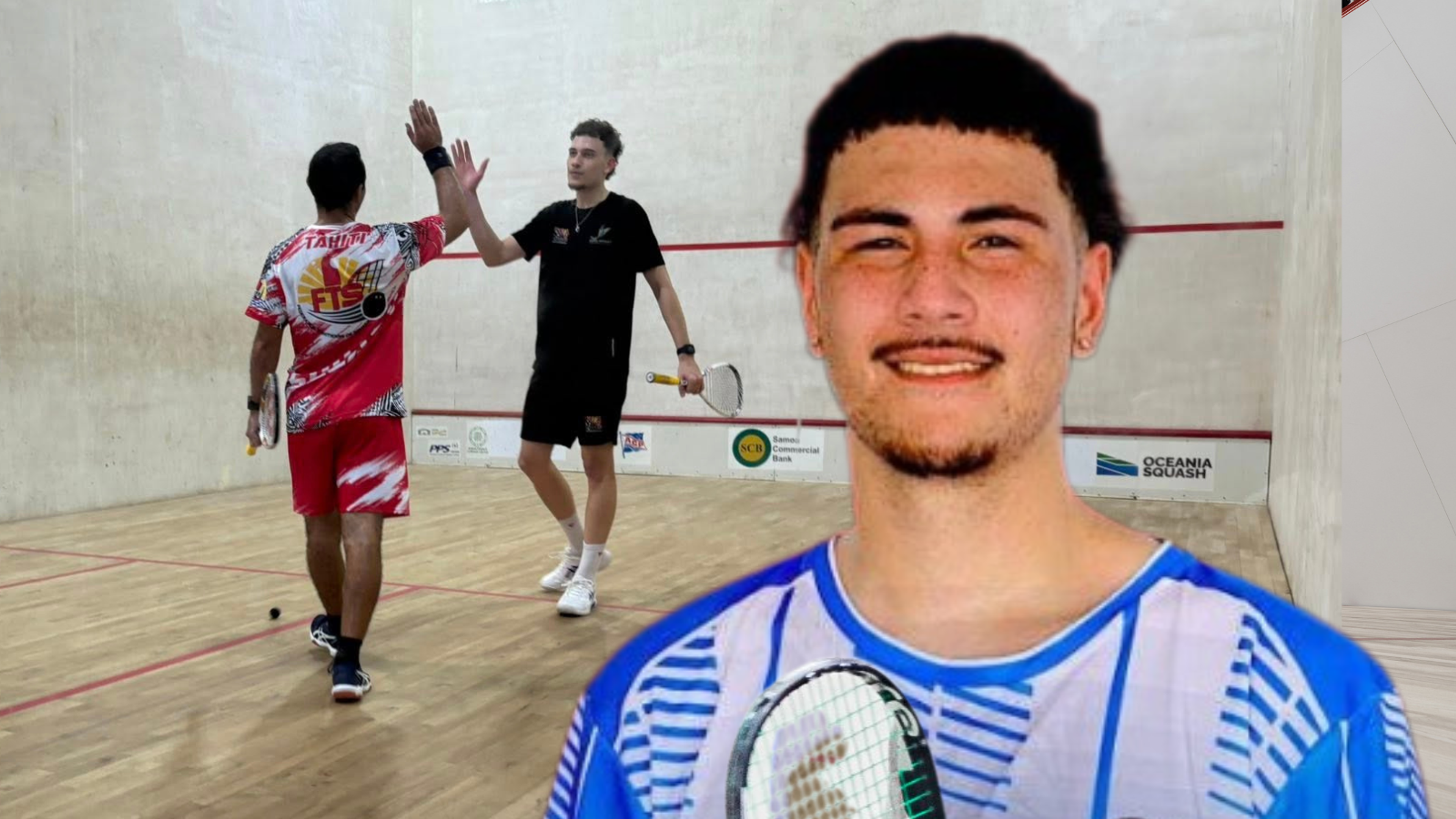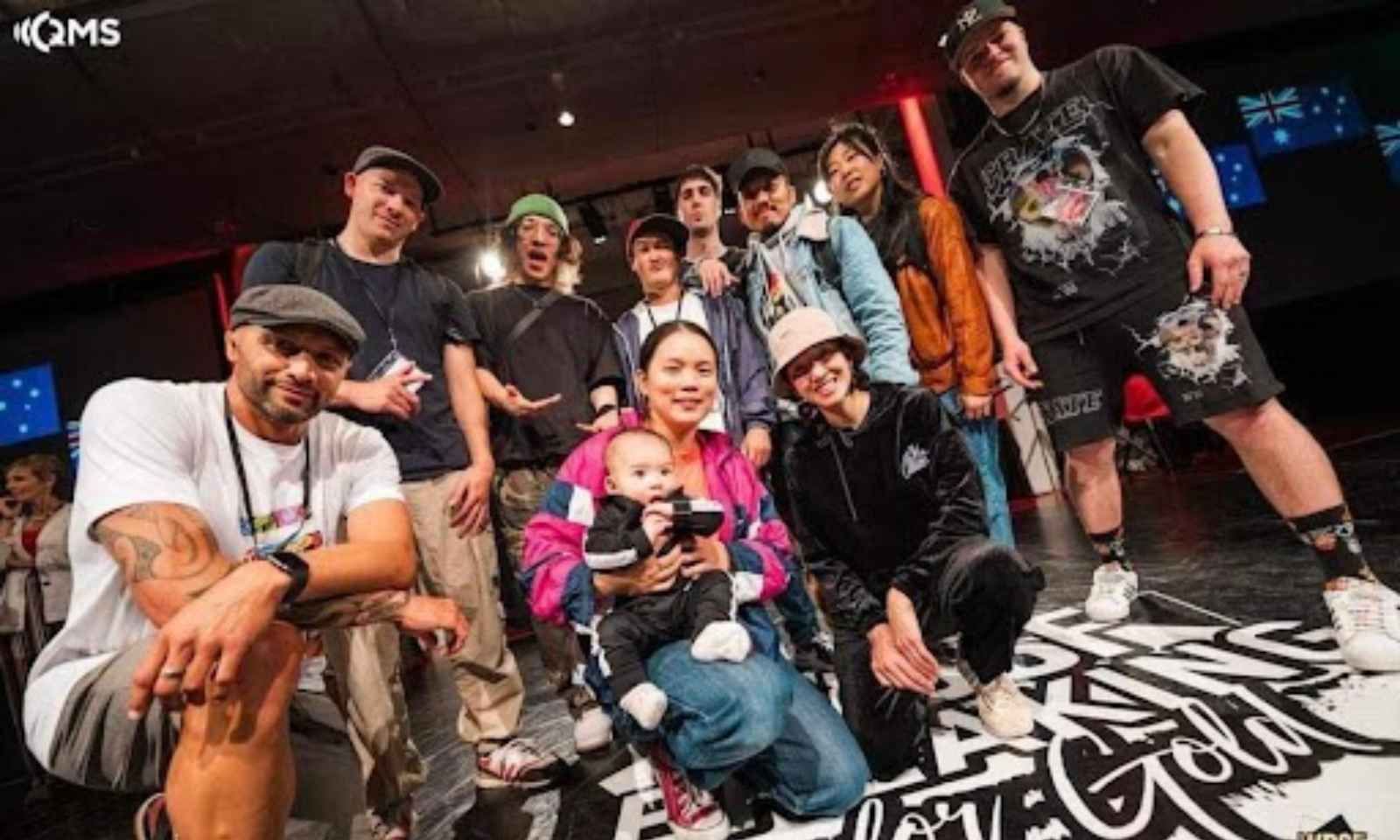

Raygun was no match for her international rivals.
Photo/ Supplied
Why NZ’s breakers say focus shouldn't be on Raygun
Local dancers say that the reactions to Raygun's performance has highlighted the need for more representation of New Zealand and Pacific breakers in the dance sport.




A.R.T sets new Pacific music pace with ‘First Thursday’ releases



Moana Pasifika end Lautoka curse to win 'Battle of the Pacific'


A.R.T sets new Pacific music pace with ‘First Thursday’ releases

Following the debut of breaking at the Paris Olympics 2024, Australia’s unexpected viral sensation Rachael Gunn also known as BGirl Raygun, has caused a global stir for displaying what critics have described as “aunty” dance moves like “the kangaroo hop” and the “sprinkler” onto the world stage.
Raygun, a 36-year-old university lecturer with a PhD in cultural studies, competed in the Oceanic Olympic qualifier in Sydney last year, winning the female breaker or “Bgirl” category against Australian and New Zealand representatives that gave her the ticket to the Paris Olympics.
Watch the qualifying final between Raygun vs Molly below:
Now a household meme, there are mixed reviews from dancers all over the world, some defending her against online trolls while others expressing concerns that the world’s interest in her quirky performance overshadowed the historic event and the impressive athleticism of her fellow breaking competitors.
Aotearoa New Zealand Breaking Association Olympic co-leader Dujon Cullingford took to Facebook to acknowledge the difficulty of finding sponsorship and community support, resulting in sending only seven competitors to represent New Zealand at the World Dance Sport Federation (WDSF) Oceania Breaking Championships Olympic qualifier last year, including only two Bgirls - both of whom had recently given birth and were not in their prime form.
“If half the NZ people moaning about Raygun attended our breaking events, we'd have enough revenue to fund our upcoming NZ Bgirls to be coached, trained, and take those Oceania spots from the Aussies,” he wrote on his page.

The New Zealand team at the WDSF Oceania Breaking Championship Qualifier last year. Photo/ Supplied
Strong opinions from non-dancers have also caused a surge of speculations online with some suggesting that Raygun was selected due to “white privilege” or that the selection process wasn't fair, but Cullingford debunks these theories.
“There was a call out a few months prior. You register. Then compete," he told PMN News.
"You needed to throw down a strong round on the day to make it through the prelims, then progress on to one vs one battles. Raygun made it through the prelims and successfully beat the other Bgirls in several battles to take the top spot.
“There is no selection bias from Aussie or inside special treatment as suggested by some of the public, because the battles are strictly skill-based and the decision-making process is completely outsourced to a strict panel of nine international judges who judge each battle across the five criteria until a champion emerges.
“The public seem to think because we have an outstanding record in Hip Hop dance on the global stage that this equates to breaking. They are different dance forms with very different sets of infrastructure.
“Breaking participation is low in Oceania. It is easier to finger-point at Raygun’s performance than find out what led us to the lack of Bgirls down here. It is a topic for another day, because it is complex, multi-generational and explores a variety of factors in our community.
"We have some absolutely incredible Bboys and Bgirls, but until we invest serious resource into the dance sport, we will not see the infrastructure needed to support our dancers to flourish on the world stage IMO. [But as a] side note, there are also some incredible and experienced Bgirls that did not enter Oceania champs.”
New Zealand representative Bgirl H, competed in last year's Olympic qualifier in the same section as Raygun just nine weeks after giving birth.
“I was competing against these girls and although I was quite unwell, I managed to hold my round before First Aid came to my rescue. So, although a lot of it was a blur to me, as well as looking after my 9-week-old baby at the same time … I do recall the finals quite vividly.
“I personally thought Molly should have taken the 'W', but at the end of the day, it was the judges call and I respect their decision. This negativity and hate has blown up immensely, therefore the focus has been taken off the competitors who did achieve well.
“People, breakers/non breakers, are going to have their opinions on the matter, and no one's stopping anyone expressing their thoughts, but I do think people should just ‘be kind’ or don't say anything at all.”
Bboy Markie Mark also represented Aotearoa at the WDSF Oceania Olympic Qualifier last year and says there were a few reasons why there was a lack of New Zealand and Pacific representation in the competition.
“Short notice, lack of funding and a lack of support,” are the three factors he highlighted to PMN News.
“I had to spend over $1000 of my own money at short notice just to get myself to the Oceania qualifiers. It’s expensive. If no one is helping you represent your country, then it just makes you not wanna do it.”
Markie says that despite the “cringeyness” of some of Raygun’s moves at the Olympics, watching her full performance in context is not as bad as the memes depict and there are valuable takeaways to learn from it.
“This brought good exposure and a wake up call to our breaking communities here in New Zealand and Australia. We can do better. The world is getting better and we just need to catch up.”
In response to the global mockery of breaking in Oceania, Markie says,
“We will continue to do it because we love what we do and that’s what’s important. If people think they can do better, then put them in a position where they have to battle someone. Great! That’s awesome.”